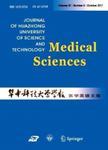Investigation on the Effects of Soluble Programmed Death-1 (sPD-1) Enhancing Anti-tumor Immune Response
Investigation on the Effects of Soluble Programmed Death-1 (sPD-1) Enhancing Anti-tumor Immune Response作者机构:Department of Biochemistry and Molecular Biology Tongji Medical College Huazhong University of Science and Technology Wuhan 430030 China
出 版 物:《Journal of Huazhong University of Science and Technology(Medical Sciences)》 (华中科技大学学报(医学英德文版))
年 卷 期:2004年第24卷第6期
页 面:531-534页
核心收录:
学科分类:0831[工学-生物医学工程(可授工学、理学、医学学位)] 0710[理学-生物学] 1002[医学-临床医学] 1001[医学-基础医学(可授医学、理学学位)] 0805[工学-材料科学与工程(可授工学、理学学位)] 0703[理学-化学] 100214[医学-肿瘤学] 0836[工学-生物工程] 10[医学]
基 金:agrantfromNationalDevelopmentProgram(973)forKeyBasicResearch(2002CB513100)
主 题:PD-1 Immune tolerance Hepatocarcinoma Soluble receptor Gene therapy
摘 要:Summary: By using semi-quantitative RT-PCR method, it was found that PD-L1 mRNA but not PD-L2 mRNA was expressed in H22 hepatoma cells and both PD-L1 and PD-L2 mRNAs were expressed in tumor tissues of tumor-bearing mice and upregulated as compared with muscle tissues in normal mice and H22 hepatoma cells. PD-L1 and PD-L2 were also expressed on the surface of the activated T cells. The soluble recombinant sPD-1 expressed from the constructed eukaryotic expression vector could enhance the lysis of tumor cells by lymphocytes stimulated specifically with antigen. The expresssion of sPD-1 by local gene therapy on the inoculation site of H22 hepatoma cells could inhibit the growth of tumor. The results of this study indicate that expression of soluble receptor of negative costimulatory molecules could reduce the inhibitory effect on T cells in tumor microenvironment and enhance the cytotoxicity of T cells on tumor cells. This possibly provides a new method of improving efficacy of tumor gene therapy.



